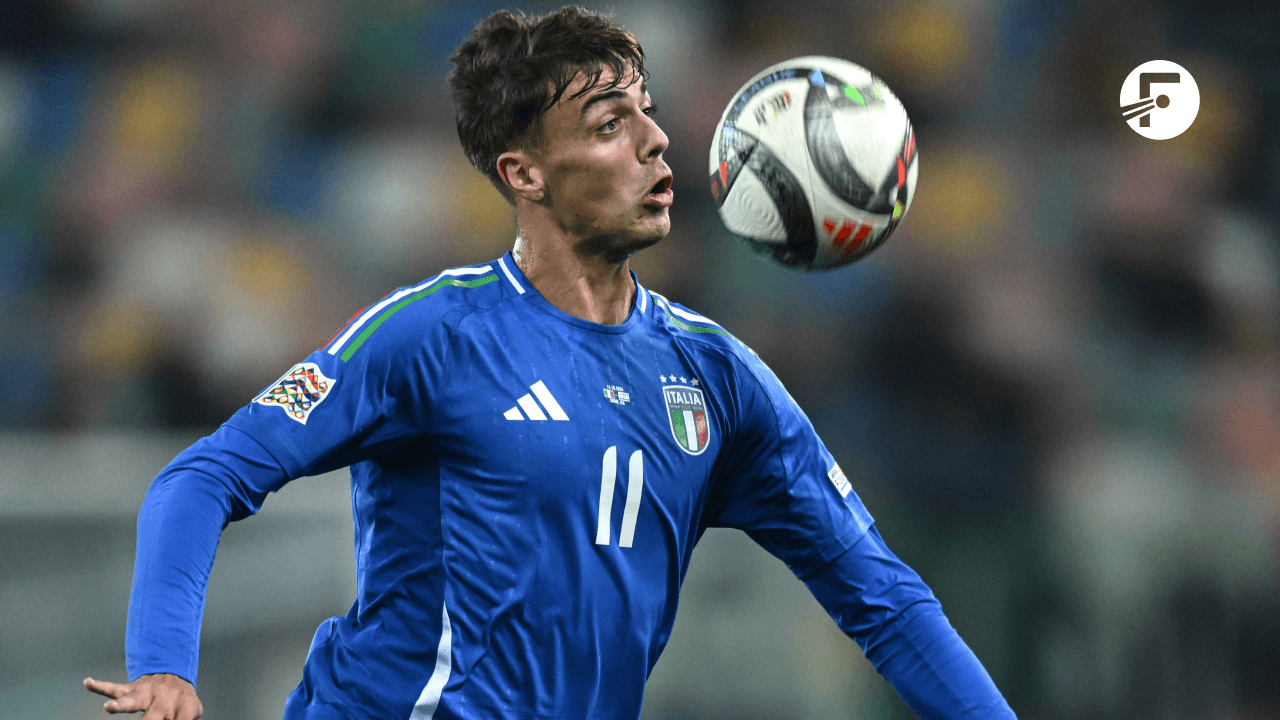Daniel Maldini made history on Monday replacing Giacomo Raspadori in the 74th minute of Italy’s 4-1 UEFA Nations League win against Israel and making his senior debut for the Azzurri.
By Zach Lowy
Eligible to play for Italy or Venezuela, Daniel Maldini chose to follow in the footsteps of his grandfather Cesare, who donned the armband for Italy, earned 14 caps, and played in the 1962 World Cup, and his father Paolo, whose 126 Italy caps are second only to Gianluigi Buffon and Fabio Cannavaro.
While the Maldini clan is the best-known example, they’re far from the only family with three consecutive generations representing a national team.
Bulgaria
The apple doesn’t always fall far from the tree, and that’s certainly been the case in the Mihaylov family tree. Biser Mihaylov spent 14 years at PFC Levski Sofia between 1961 and 1975, excelling between the sticks, leading them to four league titles, and making five international appearances. His son Borislav began his career at Levski Sofia and quickly solidified a starting spot in goal for Bulgaria, becoming their most-capped player with 102 appearances (later eclipsed by Stiliyan Petrov), and captaining them in their run in the 1994 FIFA World Cup semifinals, while his son Nikolay has gone on to become a regular in goal for both Levski Sofia and Bulgaria (46 caps).
Iceland
Whilst the Mihaylovs have earned a reputation for their imperviousness in goal, the Guðjohnsens have made a name for themselves due to their attacking firepower. Three years after having the final penalty of the UEFA Cup Final saved by Tottenham’s Tony Parks, Arnór Guðjohnsen bounced back by finishing as the top scorer in Belgium’s top division with 19 goals in 1986/87. But whilst he scored 14 goals in 73 appearances for Iceland, he does have one regret: not playing with his son.
Arnór looked set to make history by playing alongside his 17-year-old son Eiður on April 24, 1996, only for Iceland FA president Eggert Magnússon to demand manager Logi Ólafsson to not play them together, instead preferring the moment to take place on home soil in their next match vs. Macedonia two months later. Eiður replaced his 34-year-old father at halftime, and one month later, he broke his ankle while playing for Iceland’s U-18s. By the time he returned two years later, Arnór had retired.
Eiður is regarded as the greatest Icelandic footballer of all time, winning two league titles at Chelsea and a treble with Barcelona, scoring 26 goals in 88 appearances for Iceland, and his children are keeping the fire burning: Sveinn Aron (26) has scored 2 goals in 20 caps for Iceland, Andri (22) has registered 7 goals in 28 appearances, whilst Daníel (18) has already represented them at the U16, U17 and U19 level.
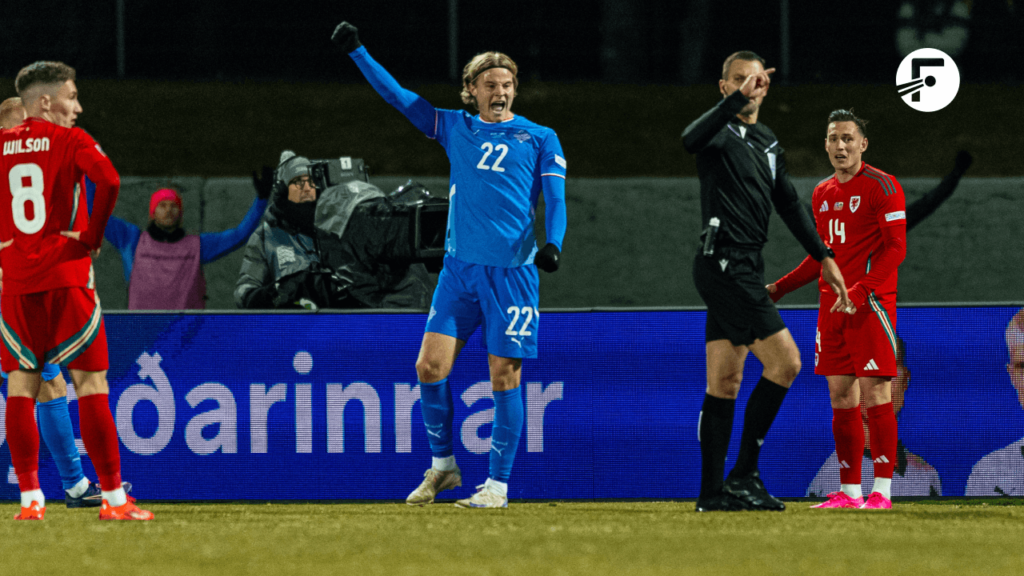
Iceland (again)
Albert Guðmundsson is the latest in a long line of Guðmundssons who have made their mark for Iceland. His great-grandfather Albert was Iceland’s first professional footballer and played for the likes of Arsenal, Milan and Rangers before serving as Minister of Finance of Iceland and Minister of Industry and producing a son: Ingi Björn Albertsson, the second-all-time leading scorer in Iceland’s top-flight with 126 goals. Not only have both Albert’s maternal great-grandfather and maternal grandfather played for Iceland, but so too have both of his parents: Guðmundur Benediktsson scored twice in 10 appearances, whilst his mother Kristbjörg Helga Ingadóttir held the record for most goals in Icelandic’s top division from 1987 to 2012. Each of the four generations of the Guðmundssons have scored for Iceland, and with 10 goals in 37 caps, Albert is proudly keeping that tradition alive.
Malta
Unlike his grandfather Salvinu, who scored one goal in three Malta appearances, or his father Eric, who scored zero in three, André Schembri would not only play more than three times for Ħomor, but play overseas, bouncing around Europe before finally retiring in 2020 after a season in India. In total, the Maltese striker scored 131 goals in 446 appearances at club level and 3 goals in 94 appearances at international level, and he began his managerial career this summer after taking charge of Cypriot second-tier side Anagennisi Deryneia.
Mexico
On June 19, 1954, 22-year-old Mexican striker Tomás Balcázar scored in the 85th minute to equalize in a World Cup group stage match, but Raymond Kopa immediately restored France’s advantage from the penalty spot in a 3-2 win. On June 17, 2020, Tomás’ grandson, 22-year-old Mexican striker Javier ‘Chicharito’ Hernández, would open the scoring against France as El Tri prevailed with a famous 2-0 victory in the World Cup group stage.
Unlike his maternal grandfather, who won 8 league titles in a decade with Chivas and scored 6 goals in 11 appearances for Mexico, Chicharito left Guadalajara at an early age and joined Manchester United, where he would participate in a Champions League Final and win two Premier League titles. He is the all-time leading scorer for Mexico with 52 goals in 109 appearances, well ahead of his father Javier ‘Chicharo’ Hernández (4 goals in 28). And he’s still going – having made an emotional return to Chivas earlier this year.
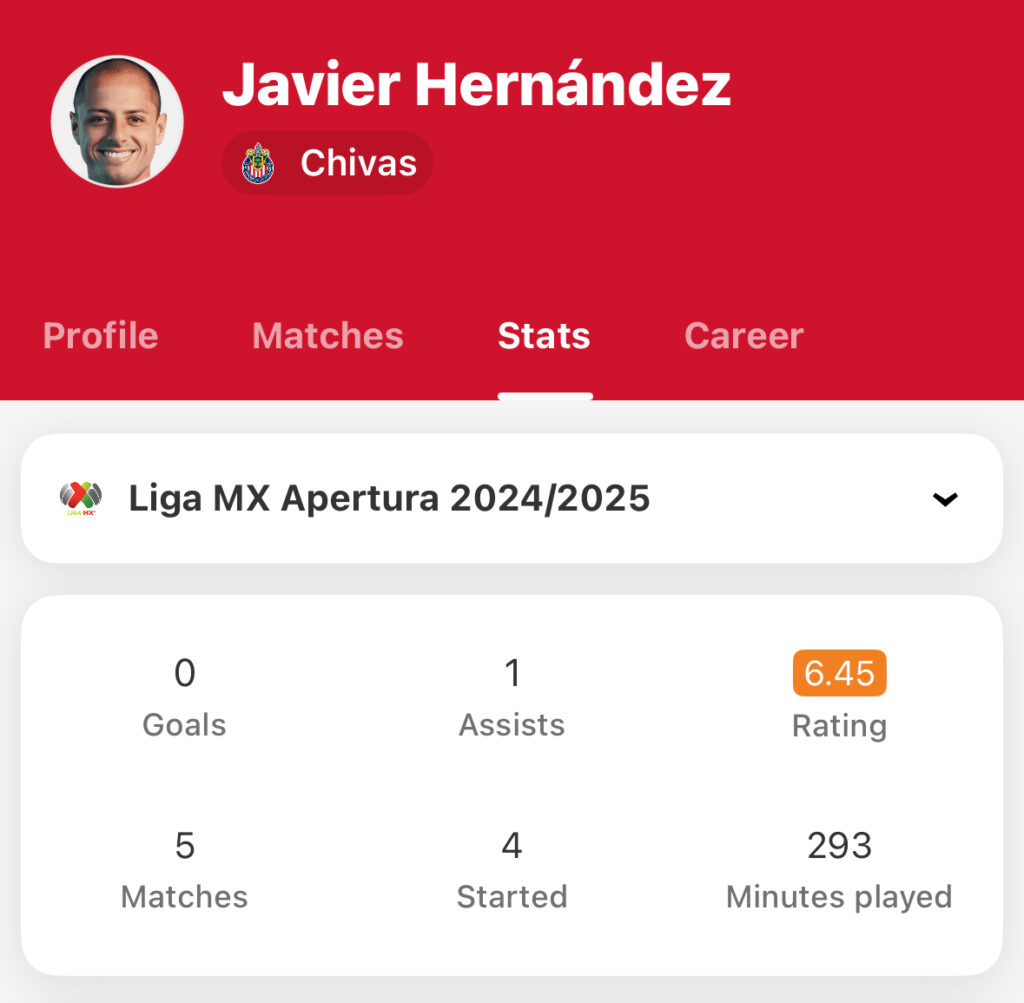
Northern Ireland
You’d be hard-pressed to find a Northern Irish family with deeper footballing roots than the Feeneys. Jim Feeney helped Linfield win three wartime league championships and represented Ireland twice in wartime internationals, whilst his son Warren made his sole appearance for Northern Ireland in 1976. Warren James Feeney would suit up for them over a quarter-century later, making 46 appearances for the Green and White Army between 2002 and 2011.
George Feeney doesn’t turn 17 until January, but he’s already made his professional debut under his father Warren James for Glentoran and earned a move to Tottenham’s academy. However, it remains to be seen whether or not George will continue the long-lasting Feeney dominance: after playing for Northern Ireland’s U16 and U17 sides, he switched allegiances to Wales and debuted for their U16 side in March.
Norway
Few names are as synonymous with Bodø/Glimt as the Bergs. Harald Berg spent the bulk of his playing career at Bodø/Glimt, finishing as top scorer in the 1965 Eliteserien season and scoring an impressive 12 goals in 43 caps for Norway as a midfielder. His grandson Patrick left his boyhood club in December 2021 and joined Ligue 1 outfit Lens for €4.5 million, only to return eight months later. At 26 years old, Patrick has already accumulated 271 appearances for Bodø/Glimt, bettered only by five players in their history, including his uncle Runar (2nd – 317), whilst he’s also played 29 times for Norway. Patrick’s uncles Ariid and Runar, great uncle Knut, and father Ørjan have all represented Bodø/Glimt – Ørjan racked up 19 caps for Norway and now serves as Bodø/Glimt’s sporting director.
Patrick sat down for an interview with us a couple of years ago, where he discussed the weight of his name. You can read that – here.
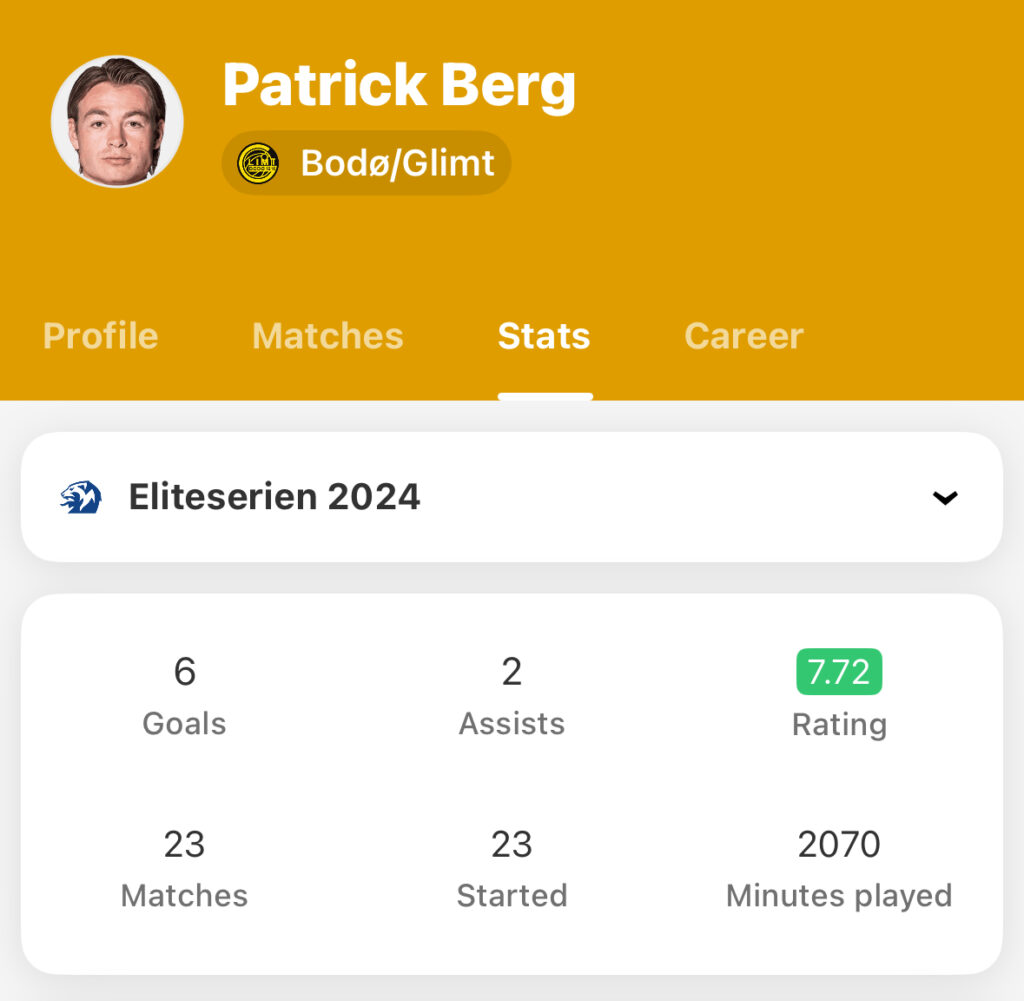
Slovakia
Whilst he only played three matches for Czechoslovakia, Vladimír Weiss won a silver medal in the 1964 Olympics in Tokyo. His son Vladimír achieved 19 caps with Czechoslovakia and 12 with Slovakia, and like his father, he also transitioned into coaching, guiding Slovan Bratislava to the last four league titles. Unlike his father and grandfather, who never left Czechoslovakia in their playing days, the third Vladimír joined Manchester City’s academy in 2006 but failed to establish himself in the first team before eventually leaving in 2012. He played for four different clubs in Europe and Asia before linking up with his father in 2020, and whilst his national career has come to an end after 8 goals in 77 caps, he is still going strong at 34 and playing a pivotal role in Slovan Bratislava’s domestic supremacy.
Spain
Marcos ‘Marquitos’ Alonso emerged as a brick wall in defense for Real Madrid and helped them win six league titles and five European Cups between 1954 and 1962, but whilst he played 215 times for Los Blancos, he only played twice for Spain. His son Marcos developed in Real Madrid’s academy but wasn’t able to make the step up to the first team, proceeding to represent two of Real’s biggest rivals in Barcelona and Atlético Madrid and win a league title and reach a European Cup Final with Barça. He made 22 caps for Spain and was an unused squad member in their run to the 1984 Euros Final, whilst his son Marcos achieved 9 caps for Spain and won the Premier League, Champions League, and Europa League with Chelsea. Like his father, Marcos was unable to ascend from La Fábrica to the first team and left Real in search of minutes, before going on to play for Barcelona, where he would win the 2022/23 LaLiga title.
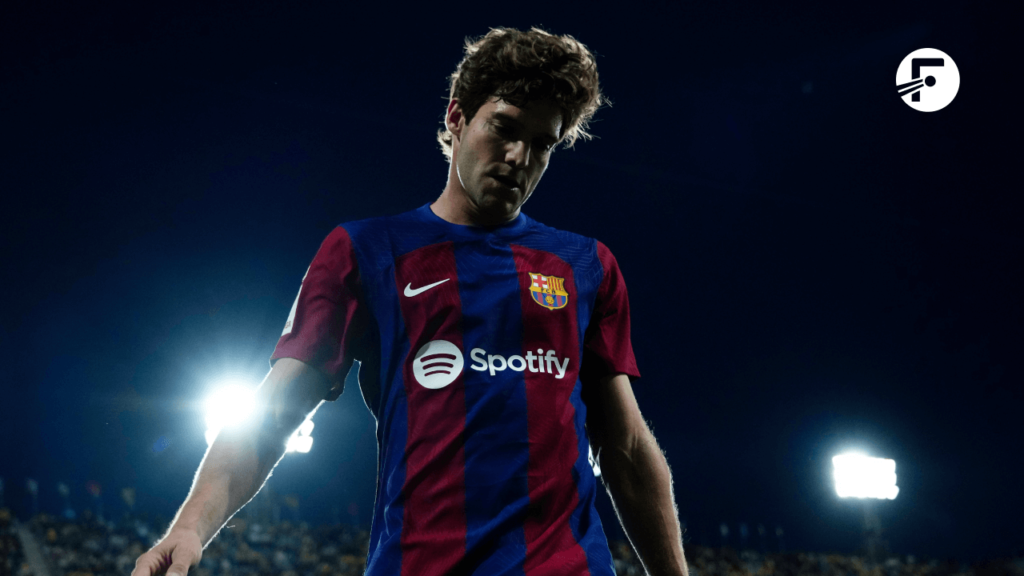
Uruguay
Whilst he only played twice for Uruguay in 1928, Juan Carlos Corazzo would end up managing La Celeste on four separate occasions, including in the 1962 FIFA World Cup. Corazzo held the record for most consecutive Uruguay games without defeat (14) from 1968 to 2012 until being surpassed by Óscar Tabárez, whilst his son-in-law Pablo Forlán would play 17 times for Uruguay and participate in the 1966 and 1974 FIFA World Cup.
Unlike his father Pablo, whose resolute displays in defense powered Peñarol to four league titles and a Copa Libertadores championship, Diego Forlán made a name for himself in attack. Diego was 12 when his sister Alejandra was left handicapped in a car accident, and the cost of these medical bills plunged his family into a financial crisis that was only averted when Diego Maradona stepped in and assisted with the fundraising efforts. Forlán decided to abandon tennis and focus solely on football in hopes of being able to pay for his sister’s treatment one day.
The rest, as they say, is history. Forlán would go on to win the European Golden Shoe in 2005 and 2009 with Villarreal and Atlético Madrid, score 36 goals in 112 appearances for Uruguay, and become the first Uruguayan to reach 100 caps, whilst he was also Uruguay’s all-time leading scorer for two years before Luis Suárez leapfrogged him.
One year after leading Uruguay to the 2010 FIFA World Cup semifinals and being named the tournament’s best player, he ended a year-long goal drought for Uruguay by scoring a brace vs. Paraguay in the 2011 Copa América Final and guiding them to their first trophy in 16 years. In doing so, he followed in the footsteps of his grandfather, who won the Copa as a manager in 1959 and 1967, and his father, who won it as a player in 1967.
It remains to be seen if either of Diego’s sons Martín (8) or his César (5) will continue the trend, but one thing’s for sure: the Forlán name will always be remembered fondly by Uruguay supporters.
(Cover image from IMAGO)
You can follow every Bundesliga game on FotMob – with in-depth stat coverage including xG, shot maps, and player ratings. Download the free app here.
